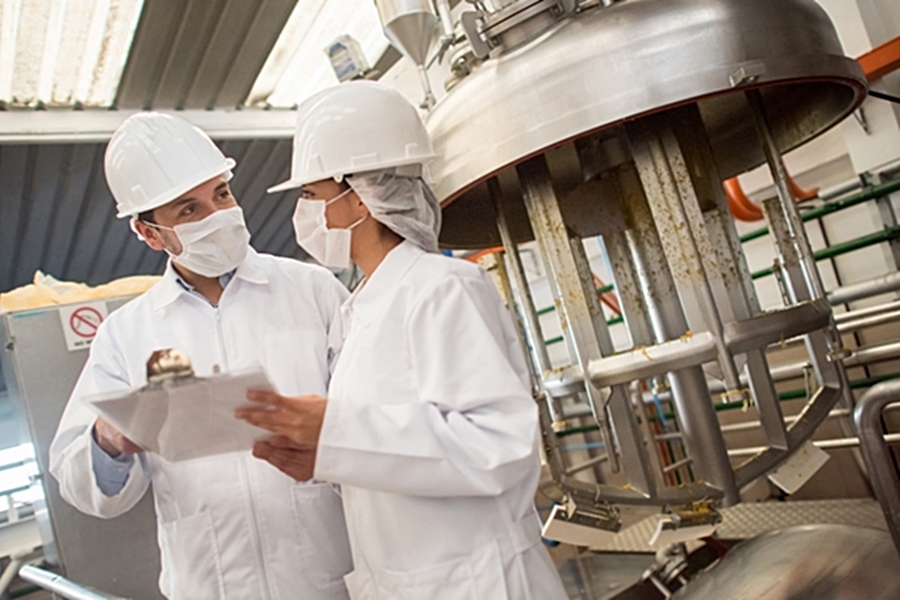Energize Your Brand With A Strong Food Safety Culture
By Brita Ball
What if “food safety” were part of your company’s brand and your employees consistently reinforced that message through their behaviour?
What if it isn’t, and they don’t?
A brand is more than a tradename and logo. It becomes an image people have of your company, products or services and it lets customers know what to expect.
Abela & Co., a well-known food service company in Dubai, United Arab Emirates (UAE), is a great example of a company that has built food safety into its brand. It gives a clear message about its brand to employees and customers, and Nancy Nouaimeh, the company’s assistant vice-president of quality, safety and performance excellence, says the food safety culture at her company is so strong, that employees resisted change when management wanted to increase focus on quality, and health and safety.
A brand is more than a tradename and logo.
Firms that have developed a strong food safety culture excel in three areas:
Purpose
The decision to develop and implement a food safety management system is more likely to be supported when it fits strategically with a company’s mission, vision and values.
“Food safety is embedded in the Abela & Co. mission statement,” Nouaimeh says. “And it is the first item on the agenda at management meetings.” That means issues and metrics are discussed and decisions are made considering all factors, the most important of which is food safety.
Management Commitment
At a company that has built its brand around food safety, senior leaders through to middle managers lead by example by showing that food safety is a high priority. In addition:
- Effective internal communication builds and maintains a food safety culture
- External communication ensures two-way communication with customers; promoting the brand and getting customer feedback to meet changing needs shows the company cares
- Adequate resources help get the job done effectively, efficiently and safely. Nouaimeh says a company survey showed that while supervisors thought resources were a barrier, managers actually identified time as an issue.
Worksite Commitment
Effective training ensures employees have the skills and knowledge to do their jobs and be accountable for food safety. National cultures influence employee perceptions of acceptable practices and language can sometimes represent a barrier. Nouaimeh says that Abela & Co. delivers training in several languages so employees can understand their responsibilities. There are other factors at work as well:
- Committed supervisors are an essential link between a company and its employees. Supervisory leadership ensures employees follow food safety practices, coaches and corrects them when needed, and encourages them to take initiative.
- Committed employees support each other to follow food safety practices, knowing how important it is to protect the customer and the company brand. An outbreak or recall can cost people their jobs.
A strong, positive food safety culture can help keep a brand strong. For companies that don’t get it right, a foodborne illness outbreak can cost millions of dollars in direct costs, and damage or even destroy a brand. Some companies don’t survive. Others turn around.
Repair and Rebuild
Jack in the Box Restaurants survived the 1993 outbreak of E. coli O157:H7 which sickened more than 600 people and killed four children in USA. Jack in the Box reviewed and made major changes to corporate food safety priorities, then implemented HACCP at all its restaurants. Senior leaders took strategic steps following their outbreak and have, to date, prevented another crisis.
Contrast this with Chipotle Mexican Grill, which had six outbreaks across the USA in 2015 before corporate leadership made changes to reduce food safety risk. The stock price plummeted. After three years and several more outbreaks linked to poor temperature control and employee practices, the food safety culture at Chipotle still needs improvement. The firm brought in a new CEO in 2018 who is working to instill a new culture, bring in customers and rebuild the tarnished brand.
About the Author
Brita Ball, PhD, CTDP, supports food businesses wanting to improve their culture of food safety, training and bottom line. She is a food safety and training specialist, principal consultant at Brita Ball & Associates, Chair of the Food Safety Education professional development group for the International Association for Food Protection, and Faculty Advisor for students in Michigan State University’s online MS in food safety. Brita is a regular contributor and an Industry Advisor to Global Food Safety Resource.

-
 FeaturedRisk management
The Cost of a Breach: What a Cyberattack Could Mean for Food Safety Recalls
FeaturedRisk management
The Cost of a Breach: What a Cyberattack Could Mean for Food Safety Recalls
-
 FeaturedRisk management
Securing the Food Chain: How ISO/IEC 27001 Strengthens Cybersecurity
FeaturedRisk management
Securing the Food Chain: How ISO/IEC 27001 Strengthens Cybersecurity
-
 FeaturedRisk management
Revolutionizing Food Safety Training: Breaking Out of the “Check-the-Box” Mentality
FeaturedRisk management
Revolutionizing Food Safety Training: Breaking Out of the “Check-the-Box” Mentality
-
 GFSI Standards
GFSI 2025: Building Trust, Tech-Forward Solutions, and Global Unity in Food Safety
GFSI Standards
GFSI 2025: Building Trust, Tech-Forward Solutions, and Global Unity in Food Safety
-
 FeaturedFood Safety
Integrated Pest Management: Strategies to Protect Your Brand’s Reputation
FeaturedFood Safety
Integrated Pest Management: Strategies to Protect Your Brand’s Reputation
-
 FeaturedFood Safety Culture & Training
No Open Door Policy: Challenges That Impact Pest Control in Food Processing Plants
FeaturedFood Safety Culture & Training
No Open Door Policy: Challenges That Impact Pest Control in Food Processing Plants




